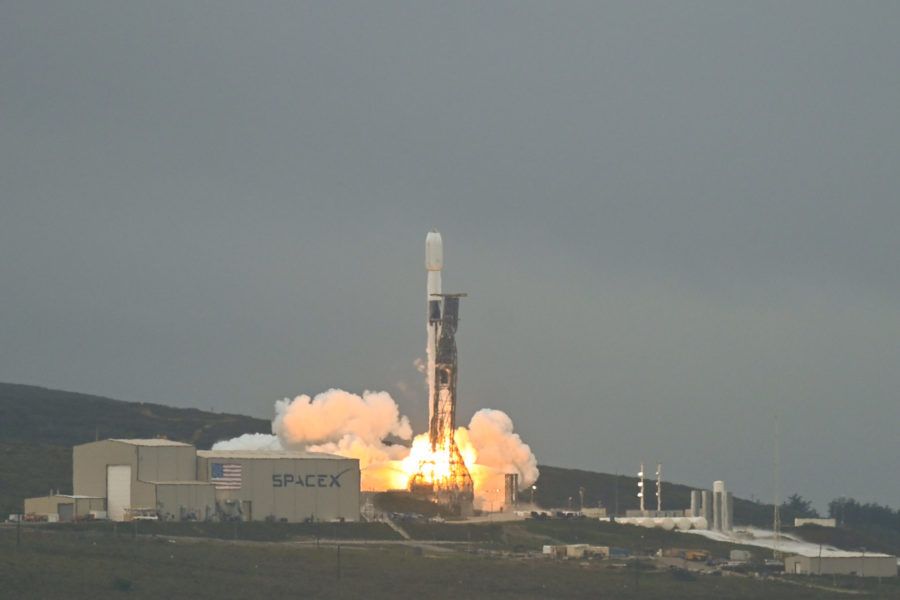Editor’s Note: The March 30 launch of SDA’s Tranche 0 satellites was aborted at T-minus 3 seconds from liftoff. SpaceX’s livestream offered no reason for the abort but indicated both the Falcon 9 rocket and payload were “healthy.” The next launch window begins at 7:29 a.m. Pacific time on March 31.
Two and a half years after the Space Development Agency awarded contracts for “Tranche 0” of what is now called the Proliferated Warfighter Space Architecture—and after a few months’ delay—the agency is ready for its first big launch.
While SDA has put a few experimental satellites in orbit before as part of a “rideshare” launch, this will mark the first milestone for the PWSA. Under the plan, the Space Force will have hundreds of small satellites, with new ones launched every few years to increase resilience and capabilities in orbit.
“We’re pretty excited to show that the model actually does work, to be able to do that proliferation to get the capabilities to the warfighter at speed,” SDA director Derek M. Tournear told reporters on a March 29 teleconference.
The SpaceX rocket will carry 10 satellites—eight for transporting and relaying data and two for missile tracking. A second batch is set to follow in June. The entire tranche consists of 28 satellites—20 for data transport and eight for missile tracking.
Tranche 0 is intended to demonstrate capabilities that later tranches, starting with Tranche 1, will operationalize. Tournear described this first batch of satellites as the “warfighter immersion tranche,” giving service members the opportunity to work with the systems and understand their capabilities.
Those demonstrations will start soon after the March 30 launch, Tournear said.
“It will take single-digit weeks to get through test and check out of the satellites, initialization, and initial calibration, and that’s when we can start to actually do the warfighter immersion to participate in exercises and things like that,” Tournear said.
The missile tracking satellites will “look for targets of opportunity for any kind of launches that we’re able to detect and track to help get calibration data,” Tournear said. SDA will then transition to formal assessments that track U.S. test objects in the spring of 2024.
The data transport satellites’ biggest trials will be related to their ability to relay data to the ground using Link 16, the military’s tactical data network. Doing so will require FAA approval, Tournear noted, which will likely preclude the satellites from being integrated into the large Northern Edge exercise as previously planned.
“We have a lot of lower-level exercises that the warfighters are going to participate in to test everything out,” Tournear said. “Most of those on the Link 16 side, we’ll start out with tests at Eglin Test and Training facility to demonstrate that and really iron out all the bugs and figure out exactly how to do this connectivity with terrestrial Link 16 radios in space. And then we’ll start to participate in some other exercises then in the INDOPACOM region after that, primarily working with the Marines and some of their planned exercises.”
Unlike future tranches, this initial batch of satellites will be operated from the Naval Research Laboratory, using refurbished ground antennas and existing ground station software.
“The Naval Research Laboratory, they have flown and operated a number of other satellites in the past,” Tranche 0 program director Mike Eppolito said. “So they bring that legacy to bear here, to be able to buy down some of the risks and some of the timelines associated with developing [ground systems].”
Each of the satellites going into orbit costs roughly $15 million. Tournear estimated the entire cost of Tranche 0 is around $980 million, which includes the cost of launch, ground segments, and operations and maintenance.
“Ours is intended to be the demonstration tranche that allows warfighters to sort of get their feet wet and start using the capabilities that we’re putting on orbit,” Eppolito said.
